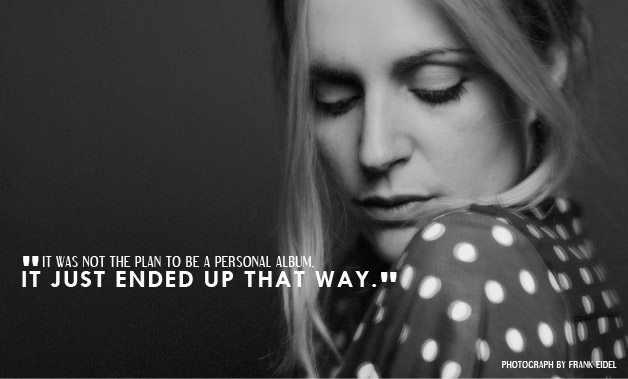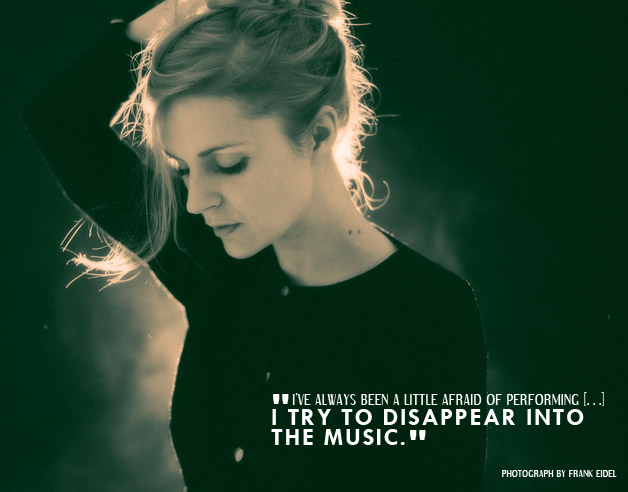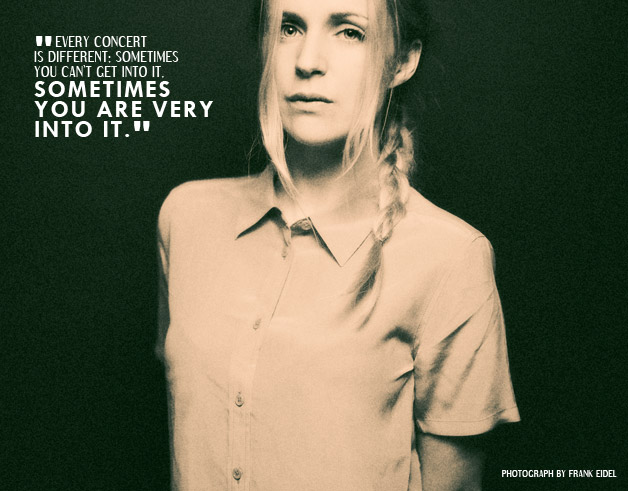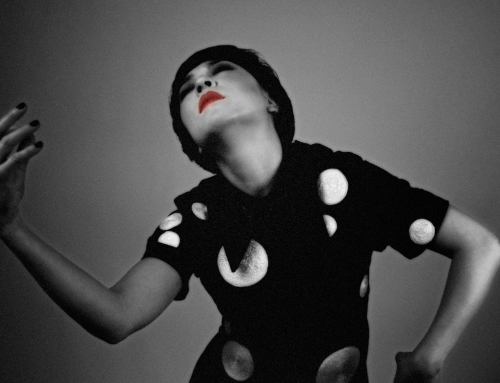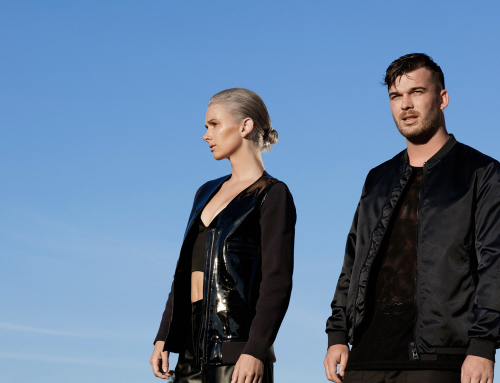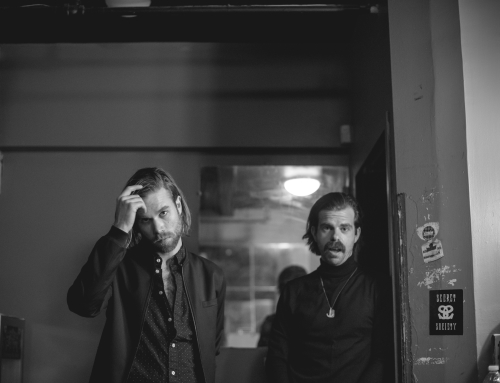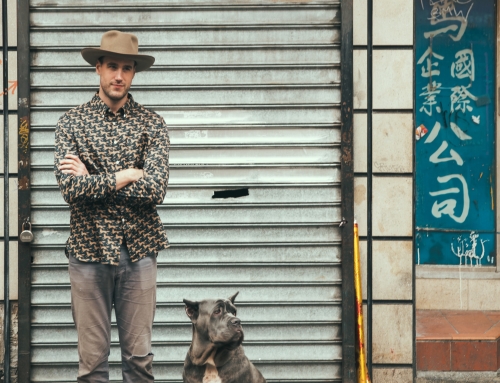Soft-spoken with an bright but timid laugh, Agnes Obel isn’t one to chase the limelight. But, with the launch of her second critically-acclaimed album, Aventine, the Danish singer-songwriter & pianist, with the crystalline voice, is learning to bear the attention her success continues to garner worldwide.
While she is a musician who admits to preferring the solitude process of song writing above all, and also one who counts stage fright as an affliction, Obel shares with FILLER that she is growing increasingly fond of performing live, since touring for her first album, Philharmonics.
“Sometimes I find [the stage] can be even more powerful than the studio because you have no control and everything is happening in that very moment,” says Obel. “When a concert is good, it’s a communal experience — it’s not just something you feel by yourself, but something you share with everyone in the room. It’s a rare phenomenon. I’m still mystified by it, I don’t know what you have to do…it just sometimes happens.”
After her much talked-about performance at this year’s SXSW — a highlight of the festival — Obel hopped across the Atlantic to Europe, where she is now currently on tour with bandmates including Canada’s own Mika Posen of Timber Timbre on cello. Boasting sold out dates in major cities including London, Paris and a two-night show in Copenhagen, the hardworking and humble Obel likes to treat each performance as an opportunity to remaster her latest tracks, experimenting with their sound and watching as the songs evolve.
Whether enjoyed live or off the record, with raw emotion and tender reflection, Aventine lulls the listener into Obel’s world of somber romance and haunting reverie. Below, the signer-songwriter talks with FILLER about the creative process behind her new album, getting comfortable on stage and the perplexing task of talking about her music.
I’ve read in other interviews, that your latest record comes from a very personal place. Was making the album a cathartic process?
Yeah, I think so actually. It was not the plan to be a personal album, it just ended up that way…I don’t know why. I really had time to sit down and work on this album, and I really needed simplicity and to focus to see what would grow out of it. And it turned out that what came of that was completely different than what I thought.
While the album is already personal, has there ever been a song that was too personal for you to share with listeners? One that you kept just for yourself?
Yeah..(laughing) I have. It’s not like you realize it while you’re doing it, but then you revisit it and you’re like, “god, this is not going anywhere.”
With the music coming from such specific and personal life experiences, does it ever amaze you how listeners can relate to your songs, how these songs can seems to speak directly to the listen about something in their own life?
I guess this is why we like books and music and other things like that because you can sort of call it “empathy technology,” you can step into the world of somebody else, and it’s your own. Every time I like a book, I feel like I’m in the head of this guy or this woman, and I think that’s a general thing when we identify with something.
I think you’re right. When performing live, do you ever look out onto the faces in the audiences to absorb their emotion into your own performance?
I’ve been thinking a lot about that because I’ve always been a little afraid of performing (laughing). And when you play an instrument at the same time, you can concentrate on that and use that, and I try to disappear into the music. But lately, I’ve been trying to not just do that.
Is there a song off the album that stands out for you?
It changes a lot because we play [the songs] and change them. At the moment though, “Run Cried and Crawling” is my favourite song. I really like how the cello is the backbone of the song. It sounds almost like a double base or even a banjo sometimes.
That’s such a great track. Overall, there’s a haunting quality to the songs off this album, songs like “The Curse” have a sad romance to them almost. Did you start writing the record knowing the mood you were going for, or did it just evolve naturally from your state of mind?
No, it happened to be like that. Previously I had been working very much from memory. Using that to write a song, to journey into a memory and recreate that with a melody. And with this album, I was very curious to see if I was able to capture the state of mind of that very moment I was in, and not really judging it, but really capture it to a piece of moment. It was interesting, I hadn’t worked that way before. I didn’t know what I was really doing…and it turned out to be this album.
It worked, it’s very cohesive. Sound-wise, how is this record different from your last?
Well, I was very interested to get the cello in. I play piano and it’s my main instrument, I’ve always worked mainly with the piano, using that as a voice together with my voice. And then I learned a lot of things about the cello through touring with a very good cello player. It’s wonderful and versatile instrument; it could be many things, it could be passionate and powerful or it could be really sad. I knew I was interested in having the cello and explore with different ways of recording it so it sounds like a voice, or have it as a beat instead of a drum.
What’s it been like touring for Aventine? Is it difficult to recreate the intimacy of the songs live?
Yeah I think so. It’s very strange…every concert is different; sometime you can’t get into it, sometimes you are very into it…it’s strange. And when things go well…and that’s not always…you forget about yourself and you’re in that moment with the song, and it feels like your sharing it with everybody. Every concert you’re hoping for that, that this is going to be one of those concerts that you get that feeling.
Do you like performing live, or do you more prefer when you’re alone during the writing and recording process?
I’ve always preferred writing by myself and recording. I always thought of myself as someone who would do that and not tour very much. But then when I was recording Aventine, I was missing sharing the music and also having the experience of seeing the songs change [like on tour]. So, yeah, I’m getting more into [playing] live and thinking about how to put that into the recording situation.
Do you write while on tour?
I didn’t, but I’m starting to. It’s a little more comfortable than things use to be. (laughing) I’m glad for the possibility to do that.
With all the travelling your doing with the record, that’s good! Your first album was very well received, when recording this new one, did you feel added pressure to create a hit album?
I was lucky that I wanted to make Aventine and was thinking about it when Philharmonics came out. So when I stopped touring, I really wanted to work on this album. I didn’t feel as much pressure from the outside, more from inside. I’m very bad at working on something that doesn’t interest me, then I just don’t do anything and become very lazy. (laughing) My discipline is based on my own motivation for what I find interesting. I can’t work on something just because I think it will be received better, I want what I want or I’ll end up not doing anything.
Do you find it harder now to tune out the outside world with the dawn of social media and things like Twitter?
Hmmm…I’m not so good at things like that, so I don’t find it hard at all. (laughing) I don’t think I’m on Twitter…
Really? I think you are…
Oh, okay (laughing), I think somebody else is on there. I think social media is fine, but what I find more difficult is talking about music…because I didn’t know that when you release music, you have to talk about it.
You mean interviews?
Yes, it was so difficult (laughing), and I really felt like I didn’t have much to say. I went around doing all these interviews while touring. And every time I would do an interview, I would feel very strange afterwards, like I had done something real wrong or corrupted something sacred.
What about now? I hope you don’t feel like that at this moment.
Now I feel okay with it, as you can hear, I can just talk about it and think about it as part of releasing an album. It doesn’t feel private anymore, but…it was really hard.
Well, I’m glad that you were able to speak to us!
Yeah (laughing). Well, you know what I did? I started reading a lot of music biographies…on older generation [musicians] like Joni Mitchell — all the ones that had a wonderful perspective on things. Because…what irritated me was that this younger generation of musicians — not just me — didn’t have anything to say, we said it all in the music. I felt like I didn’t have anything profound to say. And then I started reading biographies and it made it easier for me because it showed how you can develop and think more clearly and understand how this problem I had, others had had the exact same experience…it was normal.










